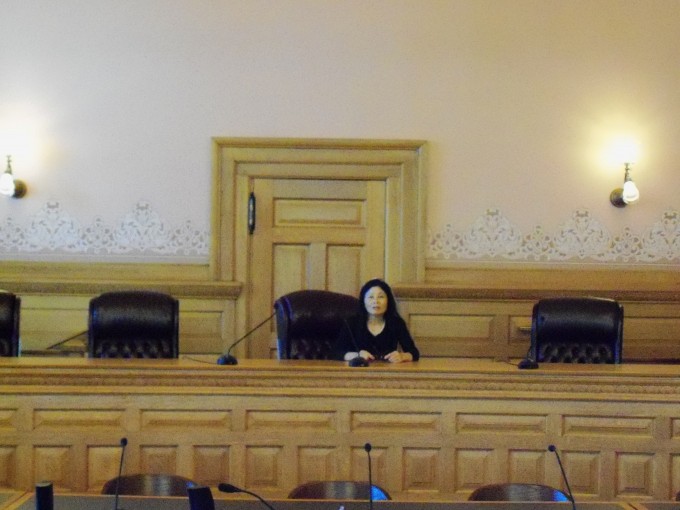
Sunday, 13 December 2015
Are they ministers of Christ?—I speak as a fool—I am more: in labors more abundant, in stripes above measure, in prisons more frequently, in deaths often. 2 Corinthians 11:23
Continuing in his comparison of himself to the false apostles, Paul asks, “Are they ministers of Christ?” This is obviously what they had claimed to be. In verse 10:7, a close comparison was made –
“Do you look at things according to the outward appearance? If anyone is convinced in himself that he is Christ’s, let him again consider this in himself, that just as he is Christ’s, even so we are Christ’s.”
If they were claiming that they were ministers of Christ, then Paul would reduce himself to their level and boast of his own ministry. In doing so, he says, “I speak as a fool.” The word here for “fool” is not the same as the one he has been using. Instead he uses the word paraphroneó. This is its only use in the New Testament and it comes from two separate words, para – beside and phroneo – mind.
Translators vary on how they present the word, but “fool” should be excluded because of its use in previous verses. Instead, words like insane, out of my mind, a madman, deranged, beside myself, in stupidity, and so on are used to convey a strong, but different intent than “fool.” His use of the words, “I am more” is being used sarcastically to show that the false apostles were, in fact, really deranged.
For Paul, it is in this sarcastically “deranged” state that he will boast about his ministry. Whatever type of ministers of Christ they are, Paul has exceeded them “in labors more often.” For the next five verses, he will list his labors in his ministry. And yet, in comparing them to the book of Acts, he only relays a small portion of what he endured for Christ. Were he to tell all, the book would be a large one.
Continuing on, he says, “…in stripes above measure.” He will explain this in verses 24 and 25. The words “above measure” mean that he, above all the others, had received such punishment. What is implied is that more punishments meant that more evangelism had been accomplished. Most would be reticent to speak after a session with rods or scourges, but Paul became more vocal, not less.
He also mentions that he was subject to “prisons more frequently.” At this point in the book of Acts, only one period of imprisonment was mentioned for Paul, but this doesn’t mean there weren’t others. His words here testify that, in fact, he had already had multiple incarcerations.
To finish out the verse, he says that he was “in deaths often.” This means that the work he did brought him close to death, or into a position where death could rightfully be expected. In 2 Corinthians 1:9, he said –
“Yes, we had the sentence of death in ourselves, that we should not trust in ourselves but in God who raises the dead.”
If the false apostles had faced any trials at all, none of them compared to Paul’s in either type or in severity. He has begun to lay out the trials and pains he was willing to go through as a minister of Christ. Either he was truly insane, or he was willing to endure these trials because of his wholehearted devotion to Christ.
Life application: How strong is your faith in Christ? Would you be willing to endure the types of trials that Paul was in order to share the truth of God’s word? If not, it is time for a faith tune-up. Who knows when such proofs of allegiance to Christ will be necessary for you!
Heavenly Father, can it be that I will face real persecution in my life for standing up for the truth of Your word? How many already do in my own nation. Christians have lost their businesses and have been sued of their possessions because of the perverse agendas of modern society. Others have lost their jobs and are publicly shamed for holding to the truths found in Your word. Even our own leader has mockingly accused them of being misguided. I would rather be “misguided” by the truth of Your word than to be “accepted” for twisting it into a perverse thing. Grant each of us the stamina to endure the course set before us as we hold to right application of the Holy Bible. Amen.




